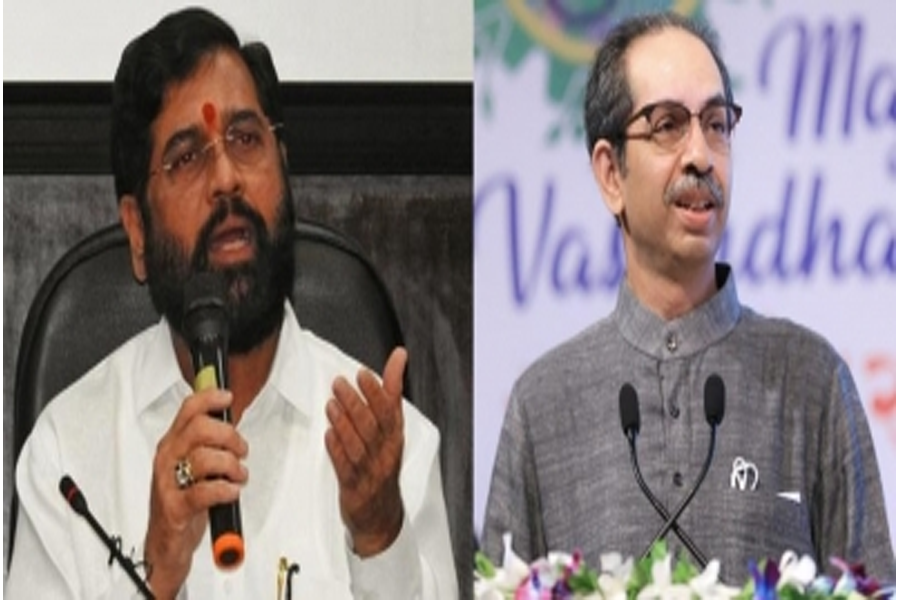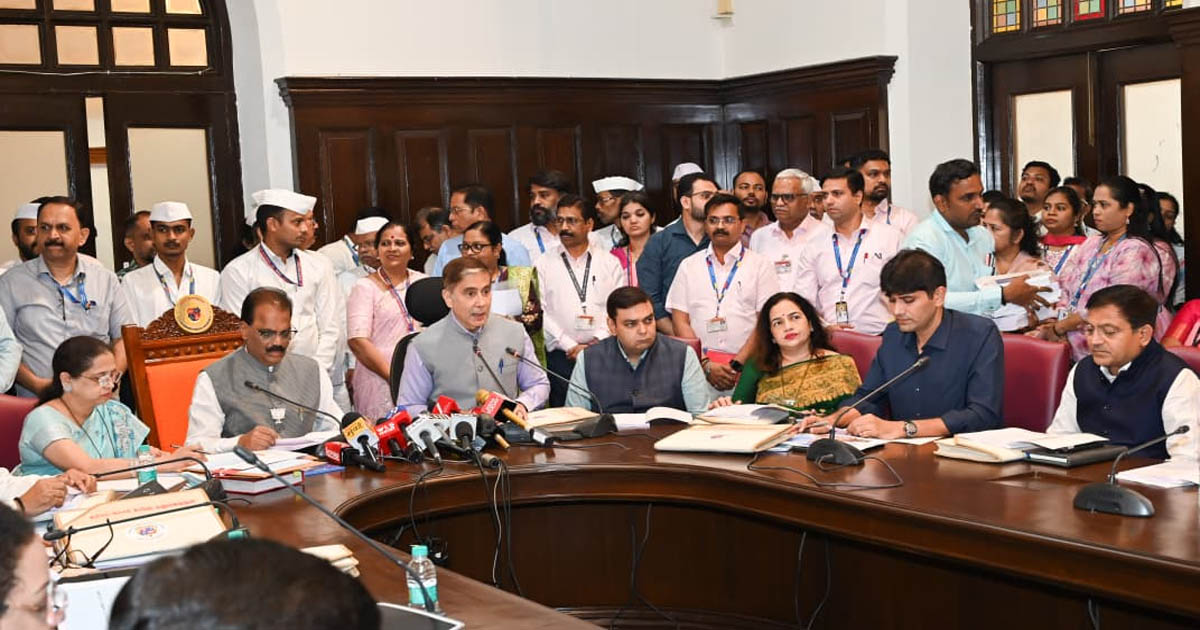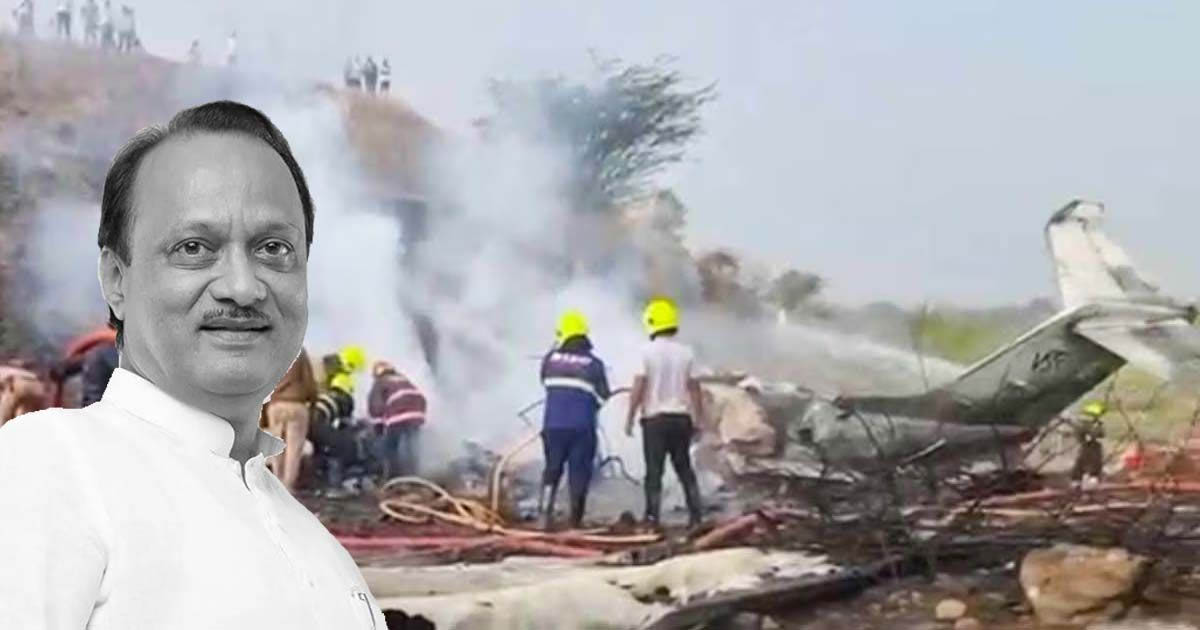Maharashtra
Uddhav vs Shinde: SC allows EC to decide which faction is real Shiv Sena

In a big setback to Uddhav Thackeray’s faction, the Supreme Court on Tuesday declined to stop the Election Commission from deciding the claim of Eknath Shinde group to be the real Shiv Sena.
After a day-long hearing, a constitution bench headed by Justice D.Y. Chandrachud dismissed the interlocutory application filed on behalf of Thackeray’s faction. The apex court’s decision is very significant in view of the impending Brihanmumbai Municipal Corporation elections, where both Shinde and Thackeray factions would like to contest the poll.
The bench — also comprising Justices M.R. Shah, Krishna Murari, Hima Kohli, and P.S. Narasimha — said there would not be any stay on the proceedings before the Election Commission on intra party dispute and ‘bow and arrow’ symbol of the party. “We direct that there would be no stay of the proceedings before the Election Commission of India,” it said.
Senior advocates Kapil Sibal, A.M. Singhvi and Devadatt Kamat represented the Thackeray’s faction. Sibal submitted that Shinde cannot approach the EC once he has incurred disqualification, saying “I challenged the very locus of the person who moved the EC”.
Sibal clarified that Shinde has incurred disqualification as his various acts amounted to “voluntarily giving up membership of the party” under the Tenth Schedule, and he also violated the party whip, which is also covered by the Tenth Schedule.
The Thackeray camp vociferously argued that since disqualification of Shinde and the MLAs supporting him was pending, therefore EC cannot consider their application over the party and the symbol. However, the top court declined to entertain this contention.
Senior advocates Maninder Singh, Neeraj Kishan Kaul, and Mahesh Jethmalani, assisted by advocate Abhikalp Pratap Singh, argued for the Shinde faction.
Senior advocate Arvind Datar represented the Election Commission.
Shinde’s faction counsel argued that under Article 324 of the Constitution, the EC possesses plenty of powers to deal with any situation which arises in relation to political parties and several party members have sent their representations to the EC supporting the Shinde group.
Kaul submitted that the nature of enquiry under Tenth Schedule and the Symbols Order are different.
Shinde’s faction counsel claimed a hopeless minority sought to remove him from the party, and contended that the Speaker, under the Tenth Schedule, has to exercise power to determine disqualification of a member and he cannot decide on the split or merger within a political party. Shinde faction counsel vehemently argued that a party member’s right to move the EC cannot be taken away.
The EC counsel argued that it worked independently, and its functions are different when compared with the Speaker. The counsel added that it can decide who held the majority in the party.
Shinde and his faction had rebelled against Thackeray, which forced him to resign as Maharashtra Chief Minister.
Shiv Sena’s General Secretary Subhash Desai had moved the apex court saying that Shinde and other MLAs, have purportedly initiated proceedings under para 15 of the Election Symbols (Reservation and Allotment) Order, 1968 (Symbols Order) seeking to be recognised as the “real Shiv Sena” by the EC. Desai added that they are also claiming the right to use the election symbol of “bow and arrow” allotted to Shiv Sena.
Thackeray faction claimed that since the disqualification matter is pending in the apex court, Shinde faction are trying to illegally cobble up numbers and fabricate an artificial majority in the organisation.
The apex court, on July 11, asked the newly appointed Maharashtra Assembly Speaker not to go ahead with proceedings on the disqualification petitions.
Maharashtra
Abu Asim response to Nitesh Rane’s statement that madrasas are the base of terrorism: Rane is a liar

Mumbai: Maharashtra Minister Nitesh Rane, while demanding a ban on madrasas, called them a haven for terrorism and showed hostility towards Muslims, on which Maharashtra Samajwadi Party leader and MLA Abu Asim has called Nitesh Rane a liar. He said that Nitesh Rane is lying about madrasas. No training for terrorism is given in madrasas in our country. This is the brainchild of Nitesh Rane. If there is any doubt, then madrasas should be monitored 24 hours a day with cameras. Defaming madrasas is just part of divisive politics. The fact is that madrasas educate orphans and poor children and make them good human beings. If we look at history, the students of these same madrasas sacrificed their lives for the country’s freedom. The purpose of madrasas has always been to serve humanity. BJP’s politics is now limited to Muslims, mosques, prayers and madrasas. He said that the way BJP and Nitesh Rane are conspiring to defame madrasas, they can never succeed in their goal because this madrasa is not your lair, but the people are made from the soil of this place. Politics is involved in all the allegations made against madrasas and that is why there is no need to pay attention to Nitesh Rane’s words, his job is to spread poison and divide Hindus into Muslims.
Maharashtra
Mumbai Municipal Corporation presents budget with deficit of Rs 80,952.56 crore for 2026-27, 8.77% increase in expenditure over last year’s estimate

Mumbai: Municipal Corporation (BMC) has presented its deficit budget for the current financial year. It has presented a budget of Rs 80,952.56 crore for the financial year 2026-27, against an estimate of Rs 89.84 crore. Municipal Commissioner Bhushan Gagrani presented the budget along with Standing Committee Chairman Prabhakar Shinde.
The new expenditure is higher than the previous year’s budget of Rs 74,427.41 crore. The civic body said it has adopted a policy of reducing administrative expenditure and has made strong arrangements for development works.
The corporation currently has Rs 81,449 crore and 32 lakh crore. Of this amount, Rs 44,826 crore and 23 lakh crore are earmarked deposits and cannot be used. The remaining amount of Rs 36,623 crore and 09 lakh crore can be used for other civic projects.
Officials said the corporation may break some deposits to fund infrastructure and development initiatives.
A key policy decision in the budget relates to outdoor advertising. The civic body has imposed a complete ban on billboards larger than 40 by 40 feet. It will also not allow billboards on footpaths or building roofs. No new approvals will be given for such structures. The move is aimed at improving public safety and curbing dangerous hoardings.
The budget has provided Rs 5,237 crore for the health department for 2026-27. The civic body also said that 1.35 crore citizens have availed services at the Hindu Hardai Samrat Balasaheb Thackeray Hospital. It plans to introduce free AI-based treatment for diabetes and eye diseases at the hospital.
To tackle the rising air pollution in the city, the corporation has allocated Rs 159.82 crore for environment and cleanliness. The budget includes Rs 1,000 crore as grant to BEST. The education department has been allocated Rs 4,248.8 crore. Solid waste management gets Rs 580.82 crore, while the storm water drainage department gets Rs 1,800 crore.
The allocation for infrastructure is Rs 6,875 crore for roads and transport, Rs 9,650 crore for bridges, Rs 950 crore for coastal road project, Rs 1,330 crore for water engineering and Rs 6,600 crore for sewerage project works. Rs 800 crore has been allocated for parks and zoos. The budget emphasizes administrative expenditure for infrastructure development.
Maharashtra
Mumbai: Ajit Pawar plane crash, Marine Drive police station refuses to register case against MLAs

Mumbai: Police has refused to register a case in the Ajit Pawar plane crash case. NCP leader MLA Rohit Pawar along with other MLAs had today gone to Marine Drive police station and demanded that a case be registered in the Ajit Pawar plane crash or conspiracy case. The process of recording his confession statement was also going on, but in the meantime, the DCP and Additional Police Commissioner refused to register a case and said that a case cannot be registered in this matter. Expressing his displeasure, Rohit Pawar said that the purpose of registering an FIR today is that the DGCA has issued a circular on the basis of which action has been taken regarding the VSR company, on this basis the VSR company is responsible for this plane crash, yet the police have refused to register a case. He said that any citizen can register a complaint at the police station, this act says, but contrary to this, the police have refused to register a case. He said that efforts are underway to save the VSR company. He said that the police register cases for other crimes including assault, but why is the police not registering a case on the incident that happened with a Maratha leader and Deputy Chief Minister Ajit Pawar? This is completely wrong. Our struggle will continue until justice is achieved. He said that tomorrow morning we will try to register a complaint at the Baramati police station. Rohit Pawar expressed his disappointment and said that if a Deputy Chief Minister does not get justice, then what will happen to the common man? Regarding the registration of a case in the case of Deputy Chief Minister Ajit Pawar, the ruling party BJP has also taken its stand that a case should not be registered in this matter, while it has also recommended a CBI inquiry into this matter, but despite this inquiry, we have the right to register an FIR, yet we are being deprived of it and have refused to take an FIR.
-

 Crime4 years ago
Crime4 years agoClass 10 student jumps to death in Jaipur
-

 Maharashtra1 year ago
Maharashtra1 year agoMumbai Local Train Update: Central Railway’s New Timetable Comes Into Effect; Check Full List Of Revised Timings & Stations
-

 Maharashtra1 year ago
Maharashtra1 year agoMumbai To Go Toll-Free Tonight! Maharashtra Govt Announces Complete Toll Waiver For Light Motor Vehicles At All 5 Entry Points Of City
-

 Maharashtra1 year ago
Maharashtra1 year agoFalse photo of Imtiaz Jaleel’s rally, exposing the fooling conspiracy
-

 National News1 year ago
National News1 year agoMinistry of Railways rolls out Special Drive 4.0 with focus on digitisation, cleanliness, inclusiveness and grievance redressal
-

 Maharashtra1 year ago
Maharashtra1 year agoMaharashtra Elections 2024: Mumbai Metro & BEST Services Extended Till Midnight On Voting Day
-

 National News1 year ago
National News1 year agoJ&K: 4 Jawans Killed, 28 Injured After Bus Carrying BSF Personnel For Poll Duty Falls Into Gorge In Budgam; Terrifying Visuals Surface
-

 Crime1 year ago
Crime1 year agoBaba Siddique Murder: Mumbai Police Unable To Get Lawrence Bishnoi Custody Due To Home Ministry Order, Says Report






















